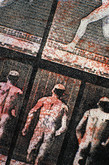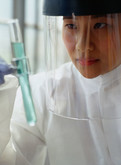Pharma News
AstraZeneca expands its generics business with Indian agreements
In line with its continued mission to supply branded generics to emerging markets, such as Africa and Latin America, AstraZeneca has entered into yet another agreement with an Indian generics firm.
Actavis plans entry to biosimilars market with Bioton agreement
In a press release on 7 September 2010, Icelandic generics’ manufacturer Actavis announced that it plans to enter into the field of biosimilars with an agreement with Polish biotechnology company, Bioton.
Ranbaxy to transfer R & D and focus on generics
On 2 July 2010, the Japanese Daiichi Sankyo Group and Indian-based Ranbaxy Laboratories announced that Ranbaxy’s New Drug Discovery Research (NDDR) has been transferred to Daiichi Sankyo India Pharma as part of the strategy to strengthen the global Research and Development (R & D) structure of the Daiichi Sankyo Group.
Ranbaxy to pay FDA to end impasse on manufacturing ban
Daiichi Sankyo hopes that its interventions may lead to a lift of the FDA’s import ban on 30 products from Ranbaxy, its Indian generic drugs arm.
Sun Pharma blocks Wockhardt settlement
Troubled generics’ firm Wockhardt is set to raise US$100 million via its foreign currency convertible bonds (FCCBs). However, fellow Indian generics’ manufacturer, Sun Pharma, has objected to the deal, amongst much speculation as to what Sun Pharma’s intentions are.
Teva increases its global position with acquisition of Ratiopharm
Generics are becoming an increasingly lucrative market with good prospects for the future. However, a report by US market data provider BCC Research shows that this is also a bit of an exclusive club. The top four global generics manufacturers in 2009 – Teva, Sandoz, Mylan and Watson – accounted for 40% of the world market.
The global generic medicines market
The global market for generic drugs was worth an estimated US$84 billion for 2009 and is expected to increase to a staggering US$168.7 billion by 2014.
Generics’ manufacturer Hospira merges with Javelin
On 22 June 2010, Hospira announced that it had successfully acquired 79% of the stock in Javelin Pharmaceutical’s. The merger agreement also allows for Hospira to exercise a ‘top-up’ option to increase its share ownership in Javelin, which, states Hospira, it fully intends to do.
Sanofi-aventis and Nichi-Iko announce joint venture for generics in Japan
Sanofi-aventis and Nichi-Iko Pharmaceutical Co., Ltd. (Nichi-Iko) have announced that they have signed an agreement to establish a new joint venture, called sanofi-aventis Nichi-Iko KK, in order to develop a generic business in Japan.
Orchid acquires US generic sales and marketing company Karalex
On 10 June 2010, Indian-based generics manufacturer, Orchid Chemicals & Pharmaceuticals (Orchid) announced that it had entered into an agreement to acquire Karalex Pharma, LLC, a US-based generic marketing and sales services company with headquarters in New Jersey, USA.












